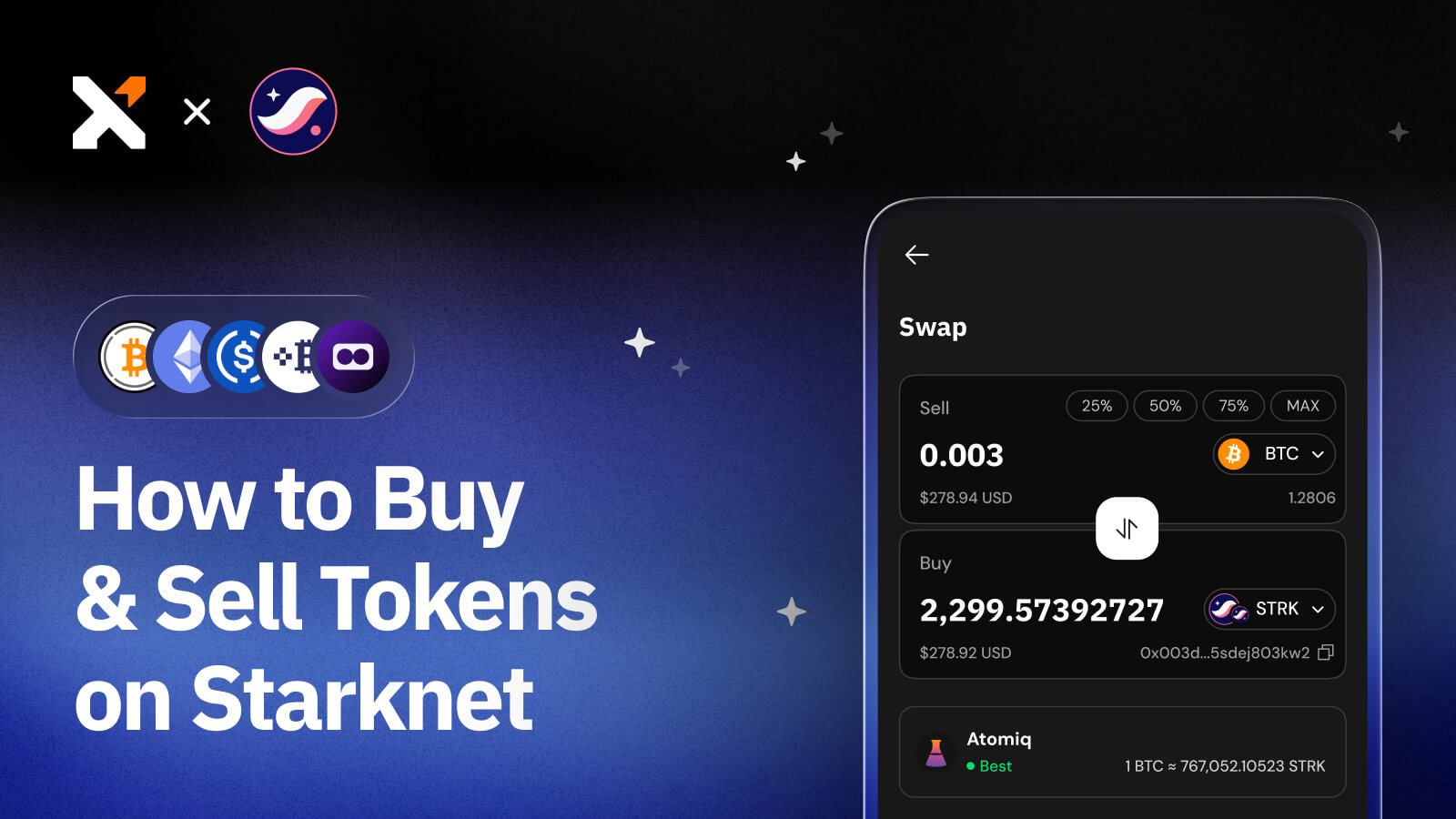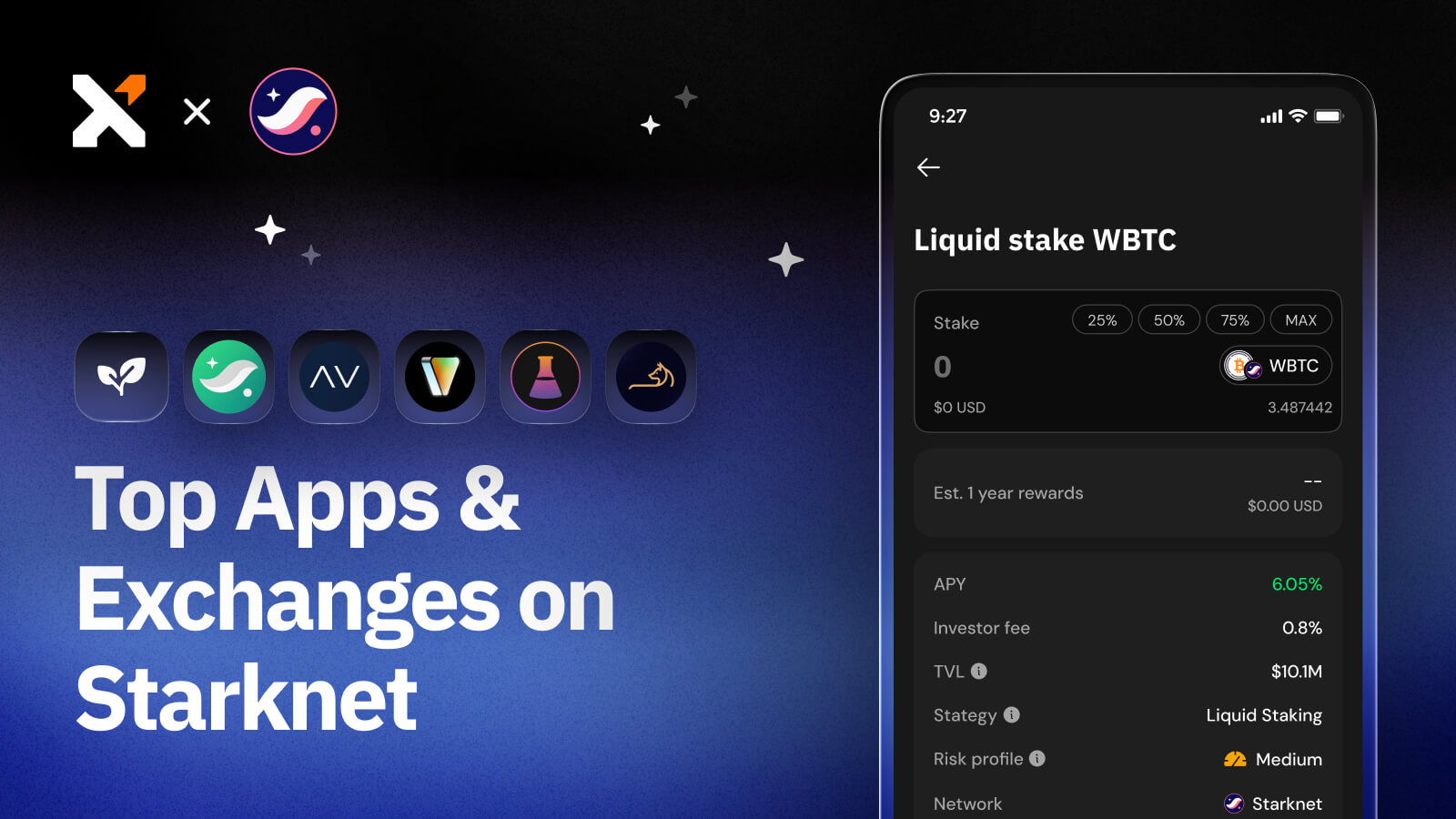Decentralized Bitcoin Exchanges: A Guide to Bitcoin DEXs
Learn about decentralized Bitcoin exchanges and how they work, and discover a list of the best Bitcoin DEXs in a beginner’s guide.

Sign up for updates!
Stay tuned to our latest news and updates
.svg)
Decentralized Bitcoin exchanges have grown considerably popular in recent years due to the rise of Bitcoin layers, such as Stacks and Rootstock.
In this guide, you will learn what decentralized Bitcoin exchanges are and how they work, and discover a list of leading Bitcoin DEXs you can use today.
What Is a Decentralized Exchange?
A decentralized exchange (DEX) is a protocol that enables users to trade digital assets peer-to-peer without an intermediary to assist in the custody and transfer of funds.
As a peer-to-peer (P2P) marketplace, a decentralized exchange links buyers with sellers, allowing them to trade cryptocurrencies directly from their non-custodial wallets. As such, users retain control over their funds throughout the trading process.
DEXs are the foundation of the decentralized finance (DeFi) system, which seeks to provide enhanced transparency, freedom, and privacy.
Decentralized Bitcoin exchanges enable users to trade bitcoin directly with one another on an intermediary-free, peer-to-peer basis, fostering the growth of the Bitcoin DeFi market.
How Do Decentralized Bitcoin Exchanges Work?

DEXs are built on Layer-1 or Layer-2 blockchain networks, and transactions are settled directly on the blockchain. They typically automate the trading process with smart contracts, code-written agreements that self-execute when certain conditions are met.
In the Bitcoin ecosystem, decentralized Bitcoin exchanges are built on Bitcoin layers like Stacks and Rootstock (RSK), which support advanced smart contracts.
While DEXs are built on the principle of disintermediation (removing the middleman), they leverage different designs. Let’s take a look at the most common types of decentralized exchanges.
Order Book DEXs
Order book DEXs utilize an order book design that is fully on-chain. Every interaction with the order book is recorded on the blockchain.
Although order book DEXs provide a high degree of transparency, the trading process can be slow, thanks to the scalability issues of blockchains. The existing blockchains today are limited in speed and storage capacity. Trading platforms using the order book design solve this problem by maintaining order book management and order matching off-chain while allowing trades to settle on-chain.
Automated Market Maker (AMM) DEXs
Most DEXs use the AMM model, where users trade against a liquidity pool. An automated market maker is an algorithm that quotes the price between two or more crypto assets. It uses the liquidity deposited in a pool to execute trades automatically.
A liquidity pool is a batch of funds used to carry out trades between different assets. The funds in these pools are deposited by liquidity providers and locked in smart contracts. Liquidity providers deposit each crypto asset in the trading pair and, in exchange, receive a percentage of the transaction fees generated inside the pool.
DEX Aggregators
DEX aggregators aggregate liquidity from multiple decentralized exchanges. This permits them to reduce slippage (the difference between a trade’s expected and actual price) on large orders and optimize trading fees and asset prices.
Some DEX aggregators use liquidity from centralized exchanges to improve user experience while staying non-custodial.
Decentralized vs. Centralized Bitcoin Exchanges: Differences & Similarities
Below is a comparison between decentralized and centralized exchanges (CEXs).

Top Decentralized Bitcoin Exchanges
Here are some of the top decentralized Bitcoin exchanges worth checking out.
ALEX
ALEX is an order book DEX built on the Stacks protocol that launched in 2022. It uses a hybrid off-chain and on-chain design, where orders are matched off-chain and settled on the blockchain. The platform is non-custodial with permissionless trading pool creation.
ALEX enables users to trade, lend, and borrow digital assets. All transactions conducted on ALEX settle on the Bitcoin base layer.
Bisq
Bisq, formerly BitsSquare, is a DEX established in 2014 that handles order matching manually while remaining non-custodial.
Unlike most DEXs that are hosted online, Bisq is software that you can download on your personal computer and use to buy and sell cryptocurrencies. Additionally, it differs from other DEXs since it supports fiat-based payment methods.
Velar
Velar is a Stacks-based decentralized exchange powered by an automated market maker. It permits users to trade crypto assets while offering earning opportunities to liquidity providers.
Velar was rolled out in 2023 to bring DeFi to Bitcoin.
Saturn BTC
Saturn BTC is an order book-based exchange for trading rare sats, runes, and rings, a token standard developed by Saturn. The platform uses a centralized matching engine for smoother transactions, which makes it less decentralized. Additionally, there are some custodial elements within the platform, requiring users to place more trust in it.
DotSwap
DotSwap is an AMM-style decentralized exchange that supports Bitcoin-native assets such as BRC-20, ARC-20, and runes. Additionally, the platform also has liquidity pools and a runes launchpad. DotSwap swaps are non-custodial, while liquidity pools are managed under the exchange custody scheme, making them custodial.
Runes DEX
Runes DEX is an AMM platform for the permissionless trading of runes. It’s a partially non-custodial exchange, but its liquidity pools are custodial. The platform also aims to facilitate the launch and trade of meme-based tokens, and provide liquidity solutions and farming rewards to its users.
RunesFi
RunesFi is building DeFi products for the Runes ecosystem, such as a DEX, trading bot, bridge, and more. The DEX, which also supports BRC-20 tokens, is already available on testnet. RunesFi claims that its DEX is non-custodial.
How to Buy Bitcoin on a Decentralized Exchange With Xverse

As the leading Bitcoin wallet for Web3, Xverse enables you to seamlessly buy bitcoin (BTC) directly through its fiat on-ramp partners MoonPay and Transak.
All it takes is accessing your Bitcoin wallet, clicking on the ‘Buy’ button, adding the amount of BTC you want to buy and your wallet address, and completing the purchase using your preferred payment method. You might also be required to complete a KYC (Know Your Customer) process.
However, Xverse also allows you to swap SIP-10 tokens (such as STX, ALEX, and xBTC)—powered by the Bitcoin layer Stacks—directly within the app, providing a user-friendly decentralized trading experience for Bitcoin DeFi enthusiasts.
Moreover, you can connect your Xverse wallet to a Bitcoin DEX like ALEX to purchase BTC using other cryptocurrencies in a completely decentralized manner.
How to Buy STX with BTC on a DEX
You can buy STX with BTC on a decentralized exchange like ALEX using Xverse. Here’s how it works!
Step 1: To swap BTC for STX, you will first need to exchange your BTC to aBTC (ALEX BTC) using a cross-chain bridge since you can’t directly swap BTC for STX on ALEX.
Open the XLINK website, connect your Xverse wallet, and swap your BTC for aBTC.

Step 2: Go to ALEXGO.io and click ‘buy.’

Step 3: Select the ‘ALEX’ marketplace on the pop-up.

Step 4: Connect your Xverse wallet to the ALEX DEX by clicking ‘Wallet Manager’ on the top right corner. You can select the Chrome browser extension or the mobile option that will give you a QR code to scan.

Step 4: Enter the amount of aBTC you want to exchange for STX, confirm your Stacks address for the deposit, and then proceed with the swap.

Once the transaction is confirmed, you will receive STX in your Xverse wallet.
And that’s it!
That’s how easy it is to trade on a decentralized Bitcoin exchange using Xverse.
Download Xverse today to seamlessly trade BTC and other Bitcoin assets on decentralized exchanges.
FAQs
Can you use a decentralized exchange to trade Bitcoin?
Yes. Thanks to Bitcoin layers like Stacks and Rootstock, which have several decentralized exchanges built on them, you can easily trade BTC and other assets within the Bitcoin ecosystem. All you need is a Bitcoin wallet like Xverse that is supported by DEXs, such as ALEX, Bisq, and DotSwap.
Keep in mind that some exchanges only support BTC in a wrapped version. For instance, ALEX and Velar use xBTC, which is backed on a ratio of 1:1 by BTC.
What is the best decentralized exchange for Bitcoin?
What one considers the best decentralized exchange for Bitcoin will vary depending on their needs.
If you want to convert BTC to STX or STX to BTC, for example, ALEX could be a viable option. On the other hand, Bisq is suitable for users who want the decentralized exchange experience while buying (or selling) bitcoin with fiat currency.
Are there decentralized exchanges that allow you to trade Bitcoin to stablecoin?
Yes, there are decentralized exchanges that enable you to convert bitcoin into stablecoins. For example, on ALEX, you can swap BTC for XUSD or SUDT by connecting your Xverse wallet. XUSD and SUSDT are both Stacks-based stablecoin that aim to track the value of the US dollar.
Share this article



.svg)




